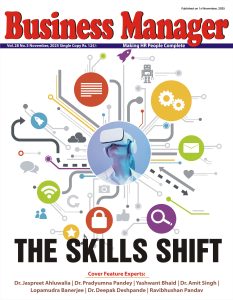Companies may offer resources and opportunities, but the individual is the one who must take responsibility for the growth. The employee and the organisation both benefit from this approach as it creates a learning and agile culture.
The Skills shift
Implementing effective upskilling programs is often more complex than simply rolling out training sessions. One of the biggest obstacles organisations face is the lack of clear communication with stakeholders.
The major shift is the adoption of the latest tools, techniques and technologies, including AI and ML, being the latest addition.
While large enterprises set the standards for structured capability-building, MSMEs hold the edge in agility and problem-solving speed, making them powerful drivers of inclusive and grassroots-level workforce transformation.
Managing the skills shift to avoid exacerbating unemployment- especially as industries evolve due to technological advancement, climate transition, or globalisation-requires a coordinated, forward-looking approach.
Technology adoption, skill transformation, human-centred leadership, and agile workforce management are necessary to boost productivity, drive innovation, and enhance resilience in dynamic environments.
Skills Shift Requires Proactive Planning And Multi-Stakeholder Collaboration
The organisations that succeed will not be those that automate the fastest, but those that align automation with a future-ready, empowered workforce. Balancing the two will ensure both productivity and social responsibility.












